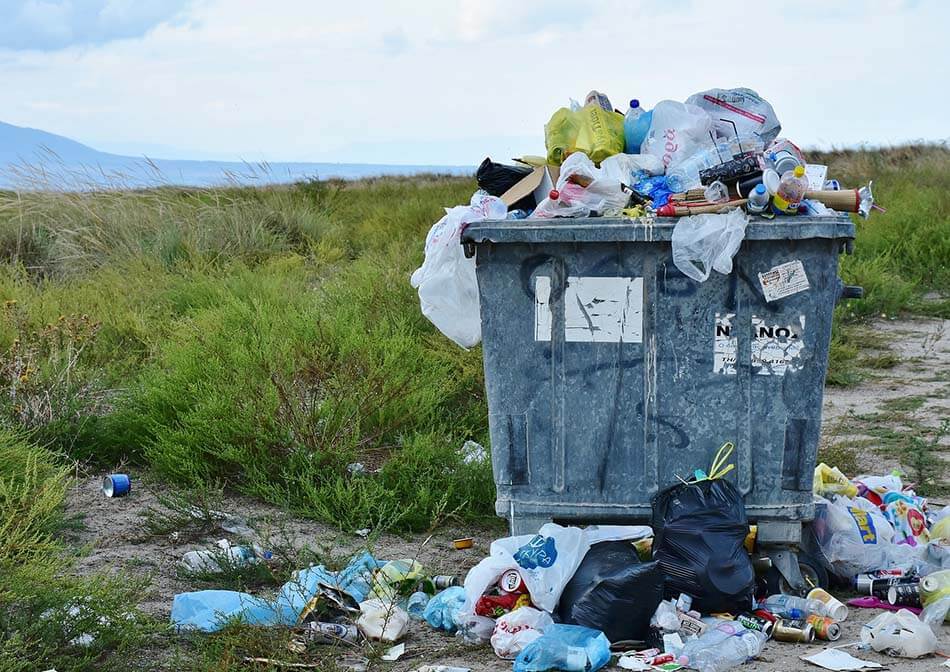According to the State Director of Clean Water Action, Amy Goldmsith, 91% of plastics in New Jersey never get recycled. This is just one of many disheartening statistics in regards to the state’s poor waste management habits.
The conclusion is that there is just too much of it.
Only so much plastic and other material can be recycled, and the cost, not to mention labor, involved with making sure waste gets treated correctly, is taking its toll on state workers.
The truth is, recycling on an industrial level is a massive undertaking, and it’s not always easy to manage such massive amounts of plastic, glass, and other recyclable materials.
Part of the reason why states are trying to ban plastic straws and bags is not just from a purely environmental standpoint. A lot of it has to do with the logistics of managing so much disposable waste that is rarely properly dealt with.
Even plastics that are meant to be recycled often end up in landfills anyway, because there’s just no money in recycling. No money, no resources, no feasible way to fund the operation unless you up taxes.
It’s a complex issue, and New Jersey seems to be on the front lines.
New Jersey Abandons Recycling Mandates
The entire recycling industry by and large has crumbled.
It used to be rather cheap to collect recyclable materials in giant masses and ship them off to places like China to have them converted. But a few years ago, China closed its doors to these shipments and decided that they simply don’t want to be the world’s dumping ground any longer.
This has caused a chain reaction that has all but collapsed America’s system of recycling and dealing with plastics and other kinds of waste. There just isn’t any money in recycling anymore, and instead of unloading all of the burden on tax-payers, many local governments have just let their recycling policies slide.
Some places literally just dump their recyclables in landfills or incinerate it, even though local residents still believe that the collected plastics and glass are being recycled.
Obviously this is unacceptable, but that hasn’t stopped local waste management agencies. There simply has been no relief or way to deal with the expenses that recycling incurs.
Recycling is a Mindset
The environmental problems we face are multifaceted.
For example, this was never just about recycling.
Finding a way to reuse these materials so they don’t end up in landfills also means less fossil fuels have to be used in their extraction and production. This also means less of an impact from a climate change perspective.
At the end of the day, it’s all about our actions and how they impact the environment. So it doesn’t matter if you are discussing recycling plastics or limiting carbon emissions, or even going vegan. It’s all to the same end: a better, cleaner future.
This means you have to rethink recycling.
It shouldn’t be the job of corporations or governments to “deal with” the massive amounts of plastic waste we produce.
Yes, they need solutions and probably more funding. That would help a bit.
But it all starts with what we do everyday, the actions we take on a collective level to reduce the use of plastic waste in general.
It starts with buying from companies that are dedicated to recycling or use recycled material. This means less new plastic in circulation.
You also have to consider using less plastic in general. For example, using your own cloth shopping bags instead of disposable plastic ones in the store.
It may seem small, but plastic bags require fossil fuel to produce, and take hundreds of years to decompose in landfills, where their toxic chemicals leech out and enter our soil and groundwater.
This stuff matters. We have piles and piles of garbage that is constructed of toxic, harmful substances held in a gentle balance. Until it starts to decompose after a few hundred years, and that material becomes a part of the soil and water, where it never belonged.
Then you are faced with an even bigger environmental problem: cleaning up the oceans and keeping the ecosystem intact.
We have to think critically about recycling and waste management, here in New Jersey and everywhere else as well. Just because some states may be able to fund their recycling efforts, doesn’t mean mass recycling is the answer. Inevitable all of this plastic has to go somewhere, and statistically, it typically ends up in landfills eventually.
More plastic isn’t the answer, even if it’s reused.
We have to start being more conscious from the ground up.
Be more conscious of what you purchase and where your products go after you dispose of them. Strive to be a part of the solution.

